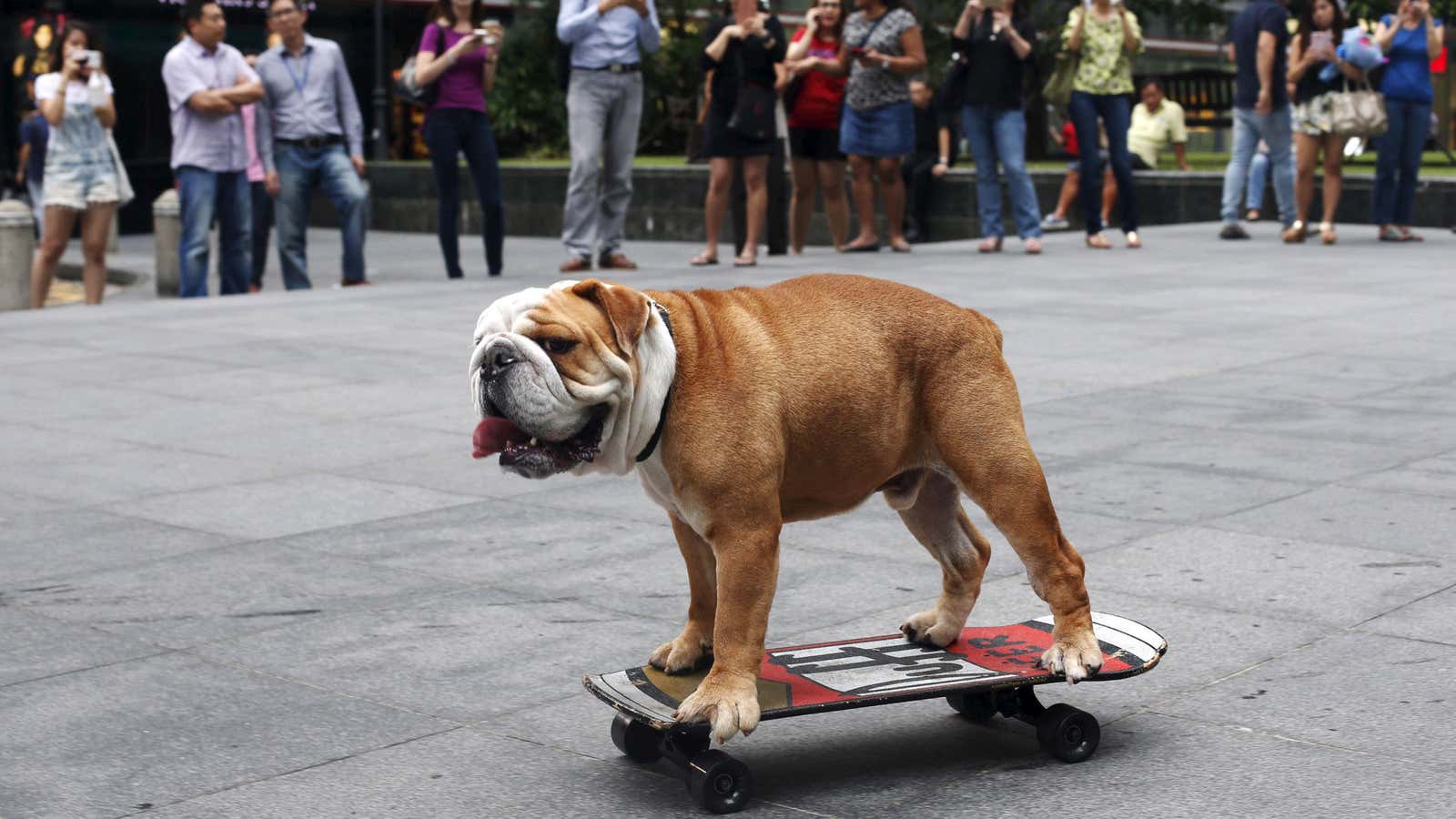The internet may love cats, but our best friends are dogs. And new research shows that that friendship may have begun thousands of years earlier than we thought.
Modern wolves and dogs have a common ancestor in a prehistoric wolf. Previously it was thought the modern versions split on the evolutionary tree about 16,000 years ago. But a new study published in Current Biology uses the genome of a 35,000-year-old wolf to estimate that the dog-wolf split could have happened as far back as 40,000 years.
The researchers found the ancient wolf remains on a six-week expedition in Russia’s Taymyr Peninsula. To locate it, they had to go up and down the river to find spots where melting of permafrost exposed the remains of long-dead animals, such as woolly mammoths.
Their calculation is based on comparing the DNA of the ancient wolf with the DNA of modern wolves and dogs. The researchers used an assumed mutation rate to turn back the molecular clock and estimate the time when the split might have happened.
Although new species were created as a result of the evolutionary split, the domestication of dogs would have taken some more time. But, with such a correction in the estimate, it is now likely that domestication occurred much before humans started farming, which was about 10,000 years ago. Thus, dogs would have been domesticated before pigs, cattle, and chicken.
This deepens the mystery. As Robert Wayne, an evolutionary geneticist at the University of California, Los Angeles told Nature, “There’s something there we don’t quite understand yet. Dogs were fundamentally important to humans in a way that other animals weren’t.”
Love Dalen of the Swedish Museum of Natural History in Stockholm, who led the study, has theories based on the new estimate about how the domestication may have happened. She told the BBC, “One scenario is that wolves started following humans around and domesticated themselves. Another is that early humans simply caught wolf cubs and kept them as pets, and this gradually led to these wild wolves being domesticated.”
These genetic calculations should be taken with a pinch of salt. Minor corrections to the assumed mutation rate can change calculations by thousands of years. Regardless, dog lovers won’t doubt the depth of their friendship with their canine buddies.
